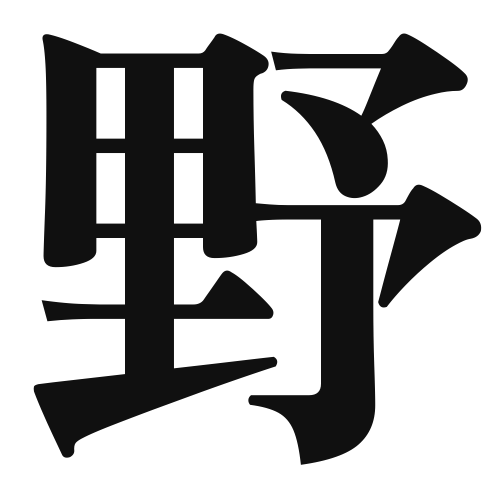1. Overview of Meaning
The kanji “野” (pronounced “ya”) primarily means “field” or “wild.” It refers to open, uncultivated land, often associated with nature and rural areas.
2. Formation and Radical
The kanji “野” is a compound character (会意文字) that combines two elements: the radical “野” itself, which represents a field or open area, and the character “戈,” which symbolizes a weapon or tool. This combination reflects the idea of land that may be used for various purposes, including agriculture or hunting.
The radical for “野” is “野” (field), which is also the entire character.
3. Examples of Usage
Common words and phrases that include “野” are:
- 野菜 (yasai) – vegetables
- 野生 (yasei) – wild (as in wild animals)
- 野球 (yakyuu) – baseball
Example sentences in daily conversation:
- 「私は毎週末、野菜を買いに市場に行きます。」(Watashi wa maishuumatsu, yasai o kai ni shijou ni ikimasu.) – “I go to the market every weekend to buy vegetables.”
- 「彼は野球が大好きです。」(Kare wa yakyuu ga daisuki desu.) – “He loves baseball.”
4. Synonyms and Antonyms
Similar kanji with related meanings include:
- 田 (ta) – rice field; specifically refers to cultivated land for rice, while “野” refers to uncultivated fields.
Antonyms include:
- 都市 (toshi) – city; representing urban areas as opposed to the rural connotation of “野.”
5. Cultural and Historical Background
The kanji “野” is deeply connected to Japanese culture, particularly in relation to agriculture and nature. It reflects the importance of fields and rural life in Japan’s history.
Proverbs and idiomatic expressions that include “野” are:
- 「野に咲く花」(no ni saku hana) – “A flower blooming in the field,” symbolizing beauty in simplicity and nature.
